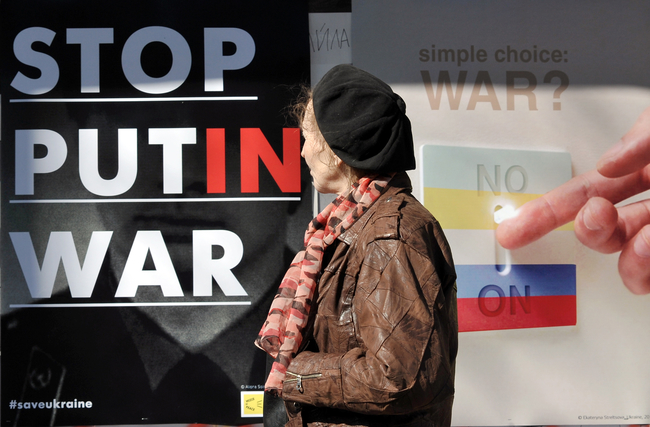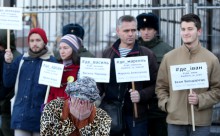Late on November 15, the Third Committee of the UN General Assembly, which focuses on human rights, approved the resolution entitled “Situation of Human Rights in the Autonomous Republic of Crimea and the City of Sevastopol (Ukraine),” which was introduced by Ukraine. The document was supported by 73 states, while 23 voted against it, including Russia, Belarus, Armenia, Kazakhstan, China, India, and Brazil. There were also 76 abstentions.
Importantly, this resolution marks the first occasion that an official document of the UN labels Russia as an occupying power and the Autonomous Republic of Crimea and the City of Sevastopol as temporarily occupied territories. In addition, the resolution confirmed the territorial integrity of Ukraine and non-recognition of the annexation of the Ukrainian peninsula.
Mykola SIRYI, Candidate of Law, Senior Research fellow at the Koretsky Institute of State and Law of the National Academy of Sciences of Ukraine:
“We now have official confirmation that a number of international organizations see clear signs of international armed conflict in the events which have been taking place between Russia and Ukraine for the past two years. However, we are still using a somewhat different interpretation ourselves, calling it an anti-terrorist operation. Thus, we have a peculiar situation...
“From an international legal perspective, a clear definition of conflict creates clear rights and obligations for the parties to the conflict. So, of course, the UN resolution marks a victory for Ukraine and international law. As noted in that document, the international legal order relies on the principles on which it is built. One of them concerns the territorial integrity and inviolability of states and protection of their sovereignty.
“The fact that we had slightly fewer countries voting for this resolution compared to the vote for a resolution expressing support for the territorial integrity and sovereignty of Ukraine two years ago – that fact is easily explained by a different direction taken by the document. Since the latest declaration offers a clear designation of the aggressor and occupier nation, it is obvious that this statement requires greater frankness on part of supporting countries, and of course, fewer countries would show such frankness and become involved in a conflict with Russia.
“The previous resolution was softer in this regard and therefore more countries supported it. We certainly need to promote this position in the UN as well as in every other direction without reducing the level of effort. And it should be understood that the UN activities form only part of the international politics and our foreign policy. Since our most important directions and guiding principles all have to do with Europe, we must project the force of this UN resolution to the European continent as much as possible.”
Don’t we need it to project that force to Asia, Africa and, say, Latin America too?
“The UN is an organization that covers the entire planet. So this is a very significant result. But in my opinion, it is highly important to connect all the work being done by the UN around this issue with the processes that take place at the European level, including the ongoing discussion with supporters of Russia or supporters of undermining the world order.
“As for China’s negative vote, its action has nothing to do with direct support for Russia. Among the countries that did not vote in our favor, some voted out of sympathy for Russia, but quite a few did so out of their own sovereign interests. Many countries have various problems, including territorial issues, and many of them step back from being involved in other issues. Therefore, refusal to vote in favor of Ukraine reflects unwillingness to become involved in some issues.”
After the publication of the aforementioned International Criminal Court (ICC) report and with the later passage of UN resolution on the situation in Crimea, some observers believe that instead of Yalta-2, Vladimir Putin will have to go to The Hague. What should Ukraine and the international community that supports us do to bring Russia to account before The Hague court for crimes it has committed?

Photo by Ruslan KANIUKA, The Day
“International criminal courts and other institutions of the international criminal justice system can only really work when a state has collapsed or suffered a defeat in an international conflict or war. These tools get actively used then. Meanwhile, as long as a state is an active participant in international relations and has enough resources to protect itself, to ensure its defense and security from external influences, the effectiveness of international tribunals remains extremely low. That is, they exert a form of diplomatic influence or pressure only. Therefore, the form of international criminal justice can be used only regarding financial penalties levied on property held abroad by a violator of international law. With regard to the prosecution of officials, I think it is a longer-term prospect.”
Why do you think so? We know that Slobodan Milosevic, Radovan Karadzic and many other Yugoslav leaders were brought to account in The Hague.
“Yes, this happened after Yugoslavia disintegrated. In the criminal justice system, national systems have precedence. Therefore, the international criminal justice mechanisms get activated only if the national level does not work for whatever reason. And this might be due to the collapse of a state or its extreme weakness in certain periods.
“To summarize, I would say that the aforementioned decisions, that is, the UN resolution on Crimea and the ICC prosecutor’s report, both indicate the need for strengthening the impact of the national criminal justice system. Inside Ukraine, we have to get our criminal justice authorities working smoothly and at a high level, so that they would act with perfect accuracy and pass decisions in the fight against crimes of general nature, but also in those cases where criminal offenses have an international legal aspect.”
Andrii SENCHENKO, MP of the 5th, 6th, and 7th convocations of the Verkhovna Rada, leader of the All-Ukrainian Movement “Power of Law”:
“Most importantly, the UN has determined where it stands regarding the events that happened in Crimea and the occupiers’ behavior in that territory. So I think this clarity will affect other international organizations and the position of many countries.
“But as soon as this news broke, I immediately began to wonder whether the president of Ukraine would finally determine that Russia is the aggressor state, or was he still lacking some data to come to this conclusion?
“In my opinion, it was Mustafa Dzhemilev who did most to get such a resolution passed. Not so much the Ukrainian diplomacy, but rather the leader of the Crimean Tatars did it by being closely involved with this issue, spending all his time in the US lately and using his contacts there to get a positive decision passed.
“Let us turn now to the possible legal consequences of the UN passing this document. While the events in Crimea and mainland Ukraine could be interpreted in different ways previously, the resolution has brought clarity. It does not have any direct, immediate consequences, liable to be converted in concrete efforts as soon as tomorrow. This resolution allows the Ukrainian government and Ukrainian diplomacy to use it as a foothold for further efforts to restore the nation’s territorial integrity.”
Hanna HOPKO, chairperson, Verkhovna Rada Committee on Foreign Affairs:
“In fact, the UN resolution is a powerful enough tool which Ukraine can subsequently use in international courts. In particular, in both the International Court of Justice and the International Criminal Court, we can bring lawsuits against the occupying and invading power and demand compensations for the economic damages suffered. All these lawsuits ought to be launched by the Ministry of Justice. But the problem is that Ukraine lacks coordination between the Ministry of Justice, the Ministry of Foreign Affairs, and other key institutions which should have developed a strategy to protect our national interests in international courts.
“After all, all the facts of Russian war crimes are well known. Earlier, a PACE resolution stated that Russia had to compensate for these crimes and loss of live. And now we have this UN resolution, which in addition to the legal component has a provision which obliges Russia to allow into Crimea observers of the UN Human Rights Committee, the Council of Europe, and other international organizations.
“So after all these crimes committed by Russia in Georgia, Transnistria, the Donbas, and Crimea, we need to use all this evidence in the legal field, when an international tribunal will try the people who gave the orders for the military intervention in Ukraine.
“Let us turn now to the Russian withdrawal from the jurisdiction of the Rome Statute of the International Criminal Court. Apparently, Vladimir Putin wants to show that after committing all these atrocities, he wants to live in a world where there are no rules whatsoever.
“Ukraine, for its part, has passed amendments to the Constitution which will see it acceding to the Rome Statute in three years, and it cannot be changed at the moment.”








